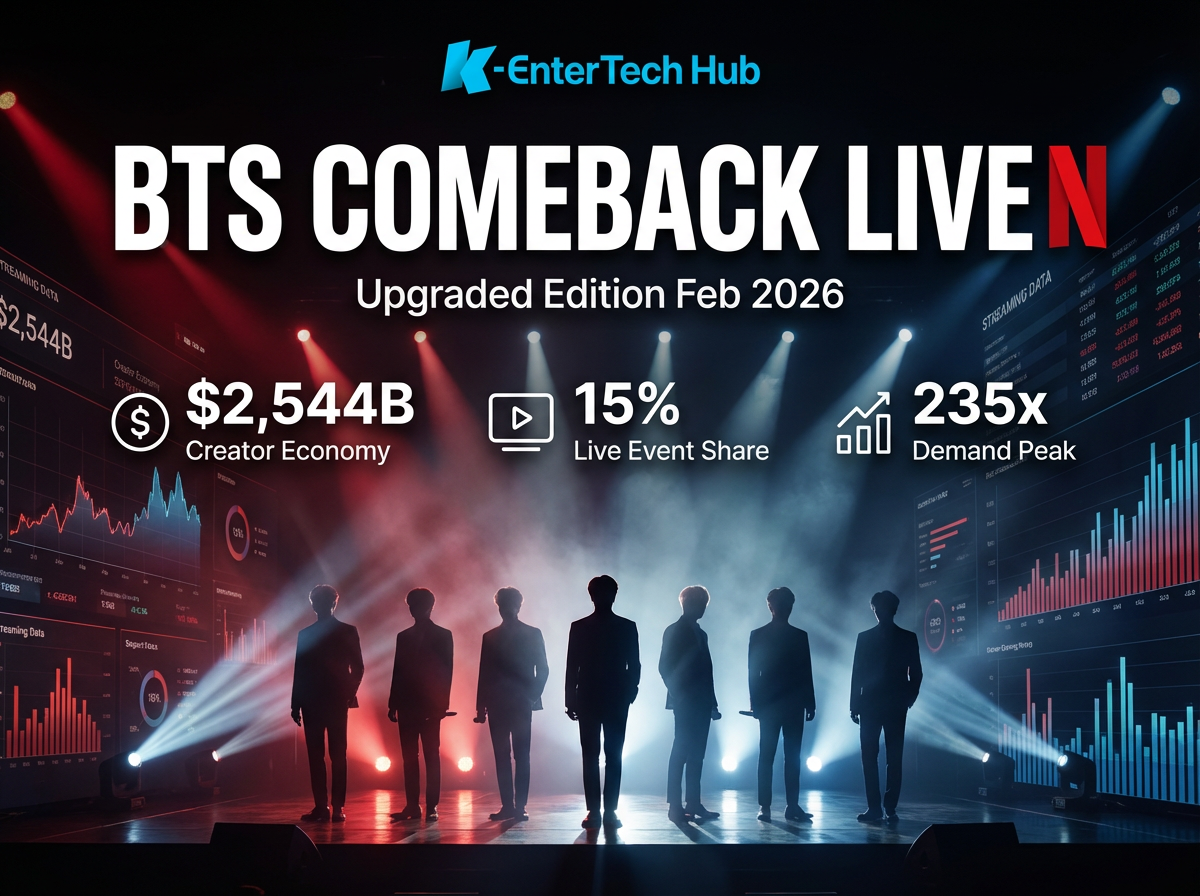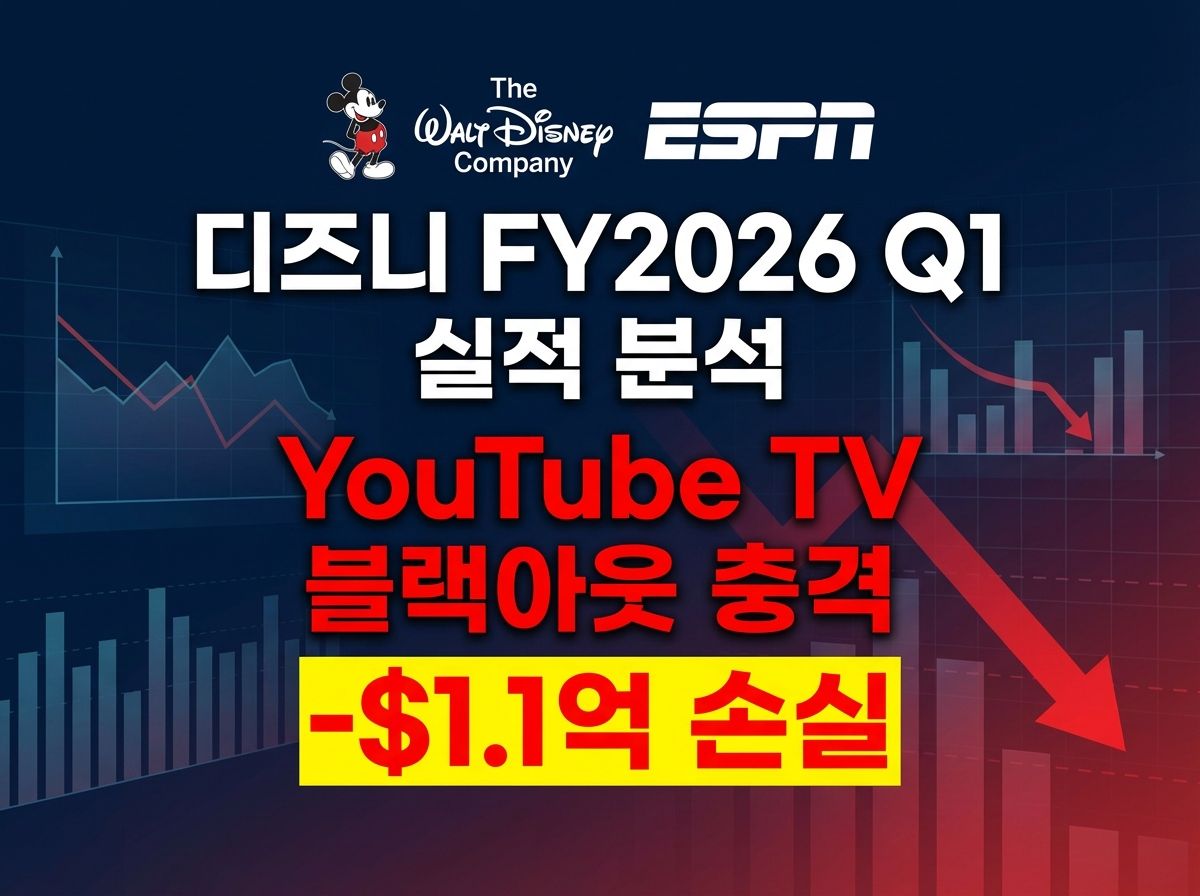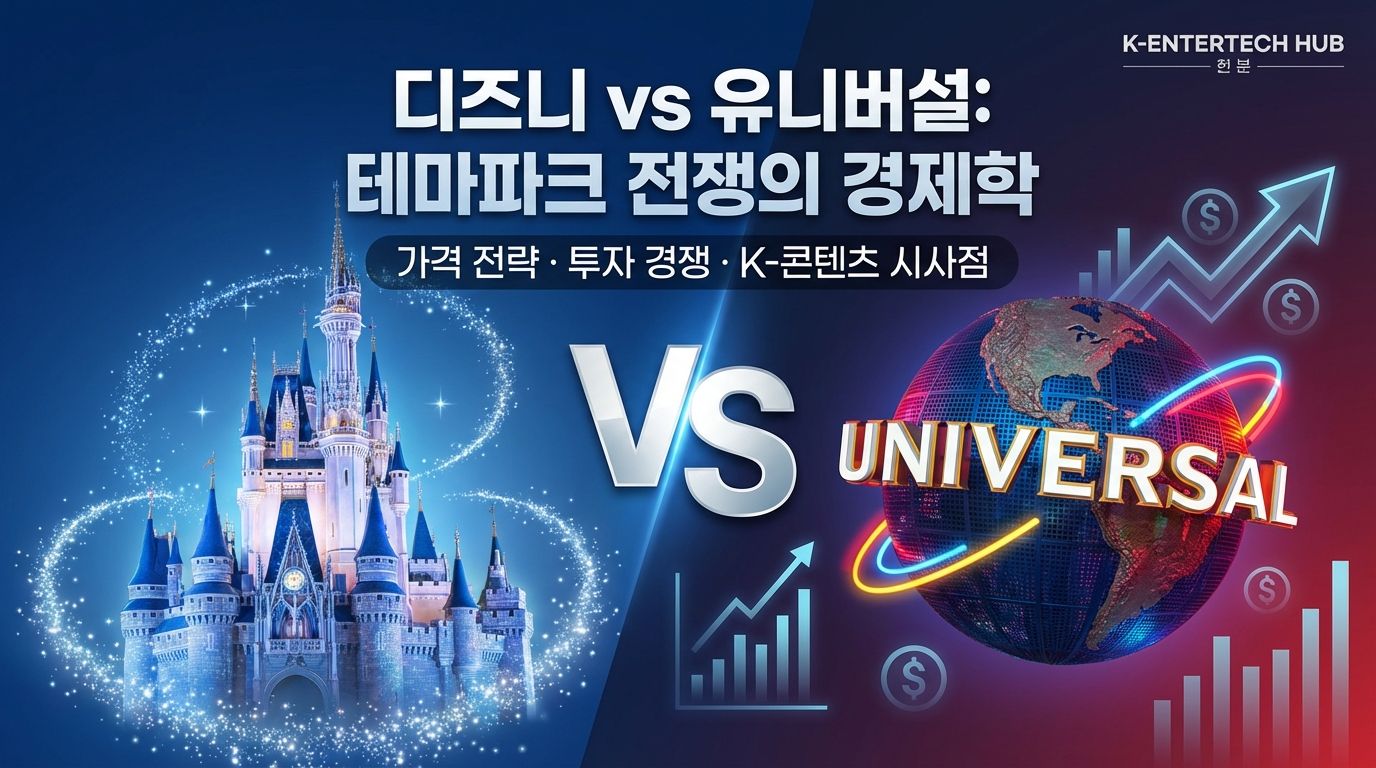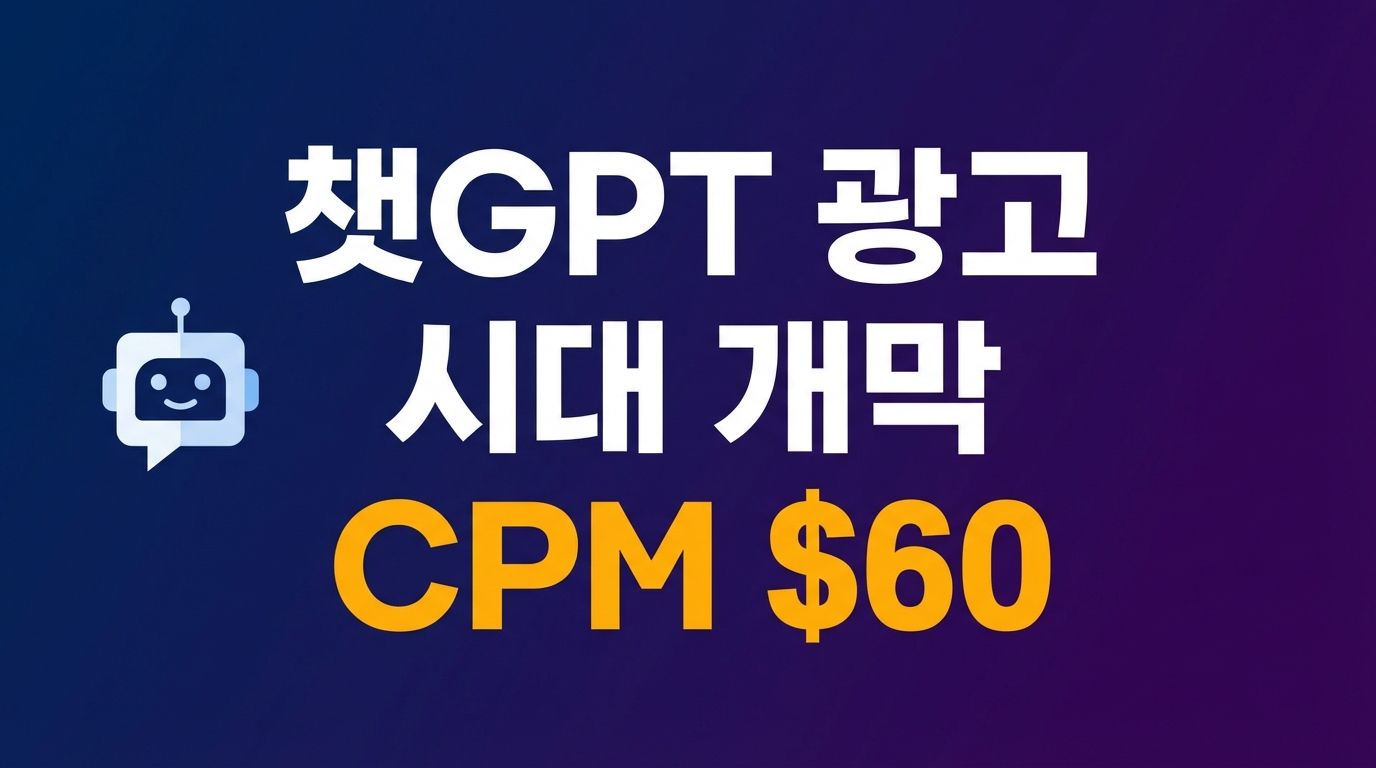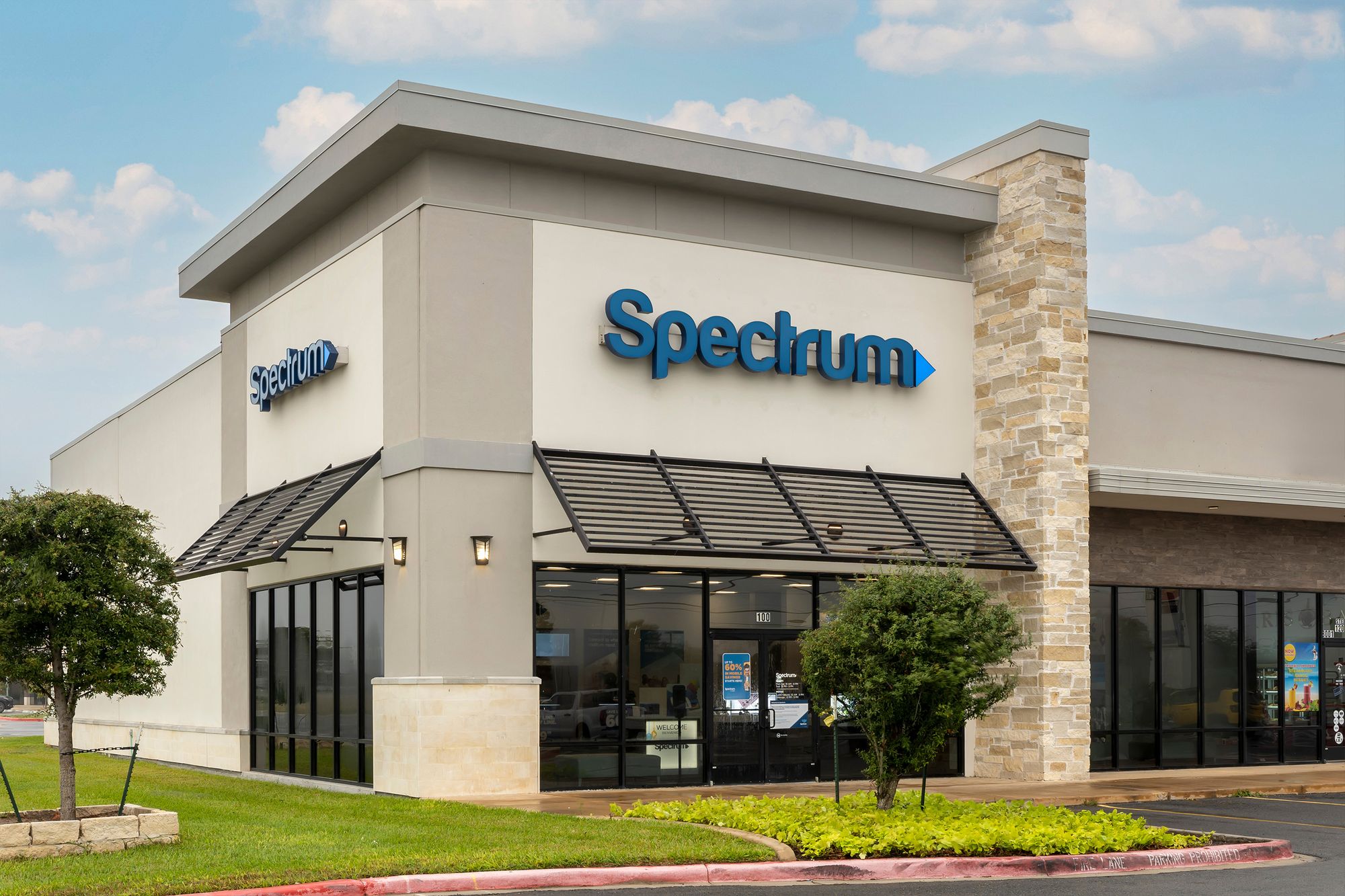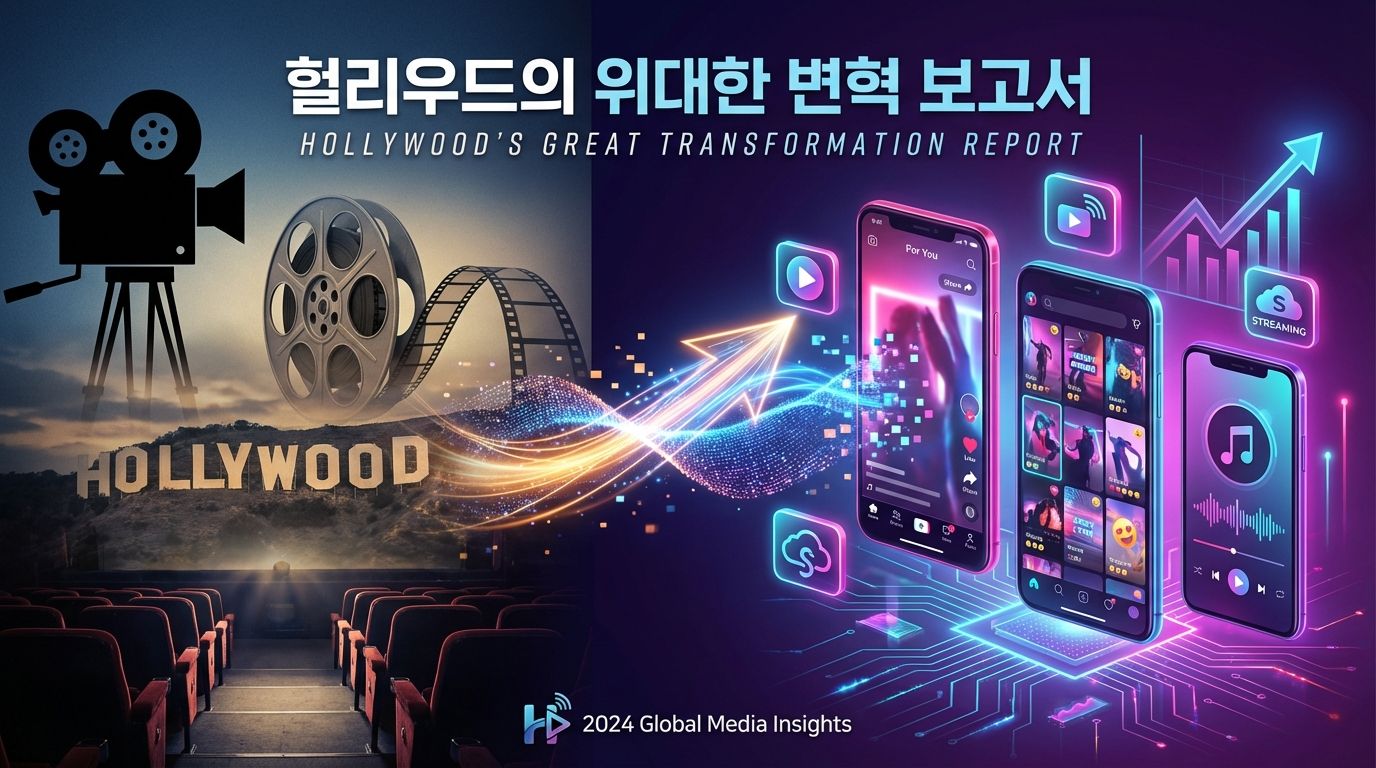넷플릭스가 시청자의 기분이나 특정 상황을 입력하면 해당 분위기에 맞춰 영화·TV 시리즈를 추천해 주는 이른바 ‘무드 검색’을 새롭게 선보이며, AI 기술 활용을 한층 강화하고 있다. 호주와 뉴질랜드의 일부 iOS 이용자를 대상으로 먼저 테스트를 진행하는 이번 서비스는 곧 미국 등 다른 지역으로도 확대될 전망이다. 업계에서는 이 기능이 단순히 장르나 배우로 검색하던 방식을 넘어섰다는 평가와 동시에, AI 도입을 둘러싼 할리우드 및 글로벌 크리에이티브 업계의 우려가 교차하고 있다고 분석한다.
넷플릭스의 AI 기반 검색 기능은 한류 콘텐츠 소비가 폭발적으로 늘고 있는 한국 시장에서도 큰 잠재력을 지닌다. 단순히 새로운 검색 방법을 제시하는 것을 넘어, 국내 제작 환경과 협력해 초개인화된 시청 경험, 제작 효율 향상, 통합 큐레이션 등으로 이어질 수 있다. 다만, AI기술이 발전함에 따라 불가피하게 제기되는 창작 분야의 일자리 위협, 윤리적 이슈를 적절히 해소하기 위한 제도적·사회적 논의도 논의될 것으로 보인다.
Netflix Enhances AI Capabilities with 'Mood Search,' Tailored to Viewers’ Emotions and Situations
Netflix is ramping up its use of AI technology by introducing a so-called “mood search” feature that suggests movies and TV series based on viewers’ feelings and specific circumstances. Initially tested among a select group of iOS users in Australia and New Zealand, the service is expected to expand to the United States and other regions. Industry watchers note that this approach moves beyond traditional searches by genre or actor name and raises questions about the balance between AI’s benefits and creative industries’ concerns.
넷플릭스, 오픈AI 기반 ‘무드 검색’ 도입
블룸버그가 보도한 바에 따르면, 넷플릭스는 오픈AI 기술을 활용한 검색 엔진을 통해 사용자가 “힐링되는 드라마”*나 “퇴근 후 기분 전환에 좋은 코미디” 같은 감정·상황 중심의 검색어를 입력하면, 이를 분석해 적합한 작품을 추천해 주는 기능을 테스트 중이다.
넷플릭스는 이미 개인 맞춤형 추천 알고리즘에 머신러닝과 인공지능 기술을 사용해 왔으나, 이번처럼 감정·상황에 초점을 맞춘 검색 기능은 처음 시도되는 것이다. 해당 기능은 일단 호주와 뉴질랜드의 iOS 이용자들에게만 제한적으로 제공되며, 추후 미국을 포함한 다른 국가로 확대될 예정이다.
넷플릭스에 앞서 한국 기반 글로벌 스트리밍 서비스인 코코와(Kocowa)는 2023년 AI 기반 검색 기능인 'AI 키토크(KeyTalk)'를 도입한 바 있다. AI 키토크(KeyTalk)는 사용자의 질문에 따라 맞춤형 콘텐츠를 추천한다. 예를 들어, "비 오는 금요일 밤에 보기 좋은 한국 드라마"와 같은 자연어 기반 검색어를 지원하여 보다 세밀한 검색 결과를 제공한다.

코코와+의 키토크의 가장 큰 특징은 넓은 검색 범위다. 소비자들은 메타 데이터를 통해 원하는 콘텐츠 정보를 보다 빠르고 얻고 효율적으로 이용할 수있다.
스트리밍 서비스에 제공되는 콘텐츠가 늘어나면서 검색 지연 문제는 비용 불편과 구독자 이탈로 이어지고 있다. 닐슨이 지난 2023년 8월에 발표한 자료에 따르면 자신이 원하는 드라마, 영화를 스트리밍에서 찾는데 미국인들은 평균 10.5분을 쓰고 있다.
때문에 ‘검색 시간 단축’과 ‘정확한 표적 검색’의 중요성이 높아지고 있다. AI키토크는 AI기반 데이터 변환 기술을 이용해, 다양한 언어와 썸네일, 검색 지점을 제공해 정밀한 콘텐츠 추천이 가능하다. 질문에 따라 서로 다른 결과를 노출시켜줘 이용자 만족도도 높다. 코코와+는 기본적으로 이용자의 검색 결과와 질문을 바탕으로 ‘개인에 최적화된’ 콘텐츠를 추천한다.
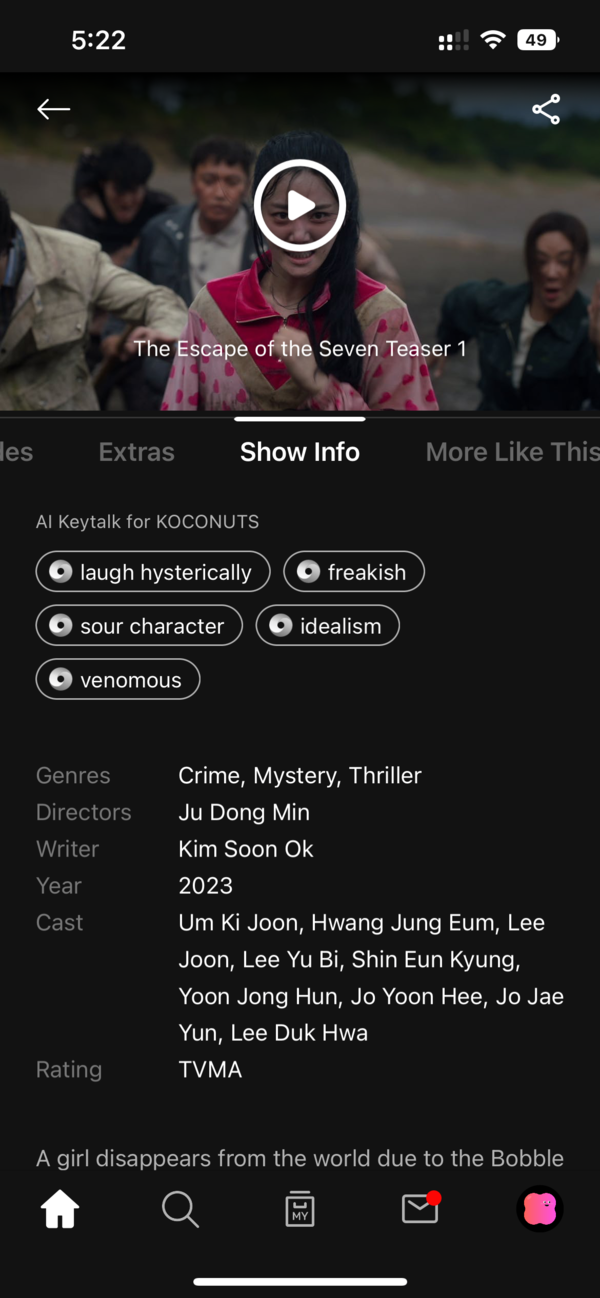
AI 키토크 도입을 주도했던 당시 박근희 웨이브아메리카스 대표는 2023년 인터뷰에 “코코와+는 보다 더 개인화된 엔터테인먼트 소비 경험을 제공하기 위해 노력하고 있다”며 “구독자들은 기본적인 추천을 넘어 새로운 단계의 몰입과 콘텐츠 탐색 만족도를 AI키토크를 통해 얻을 수 있다”고 강조한 바 있다.
Netflix’s AI-Based ‘Mood Search’ in Action
According to Bloomberg, Netflix’s new search engine—powered by OpenAI—analyzes user inputs such as “a healing drama” or “a comedy to lift my spirits after work,” then recommends content that matches those emotional or situational cues.
Although Netflix has long employed machine learning and AI for personalized content recommendations, this marks the company’s first foray into a mood- or situation-focused search function. Currently limited to iOS users in Australia and New Zealand, the feature will soon roll out to additional markets, including the United States.
Netflix previously acknowledged concerns in Hollywood that AI could displace creative professionals by reducing production and labor costs. Ted Sarandos, Netflix’s Co-CEO, stresses that AI might enhance efficiency in production processes, yet he downplays the idea that AI will replace creative roles such as writers or actors. To address these concerns and gather user feedback, Netflix chose an “opt-in” test rather than a global rollout.
KOCOWA’s Earlier Adoption of AI Search
Before Netflix’s announcement, KOCOWA, a Korean-based global streaming service, introduced an AI-powered search feature called “AI KeyTalk” in 2023. This function offers personalized recommendations based on user inquiries in natural language. For example, when a user types “a Korean drama perfect for a rainy Friday night,” AI KeyTalk processes the query to provide more nuanced search results.
A key strength of KeyTalk lies in its ability to handle a broad range of content metadata, making searches faster and more efficient. With the constant growth of available streaming titles, search latency can lead to poor user experiences and even subscription cancellations. According to a Nielsen study from August 2023, Americans spend an average of 10.5 minutes searching for their preferred show or movie on streaming platforms.
AI KeyTalk aims to shorten search time and deliver precise results using AI-driven data conversion technology. It supports multiple languages, offers thumbnail previews, and provides fine-grained content suggestions based on user questions—ultimately boosting user satisfaction. KOCOWA+ (the service featuring AI KeyTalk) further refines these results by recommending content “optimized” for each individual user.
In a 2023 interview, Park Geunhee, President of Wavve Americas, who spearheaded the introduction of AI KeyTalk, stated, “KOCOWA+ is focused on creating a more personalized entertainment experience. Beyond basic recommendations, subscribers can achieve deeper engagement and discover new content through AI KeyTalk.”


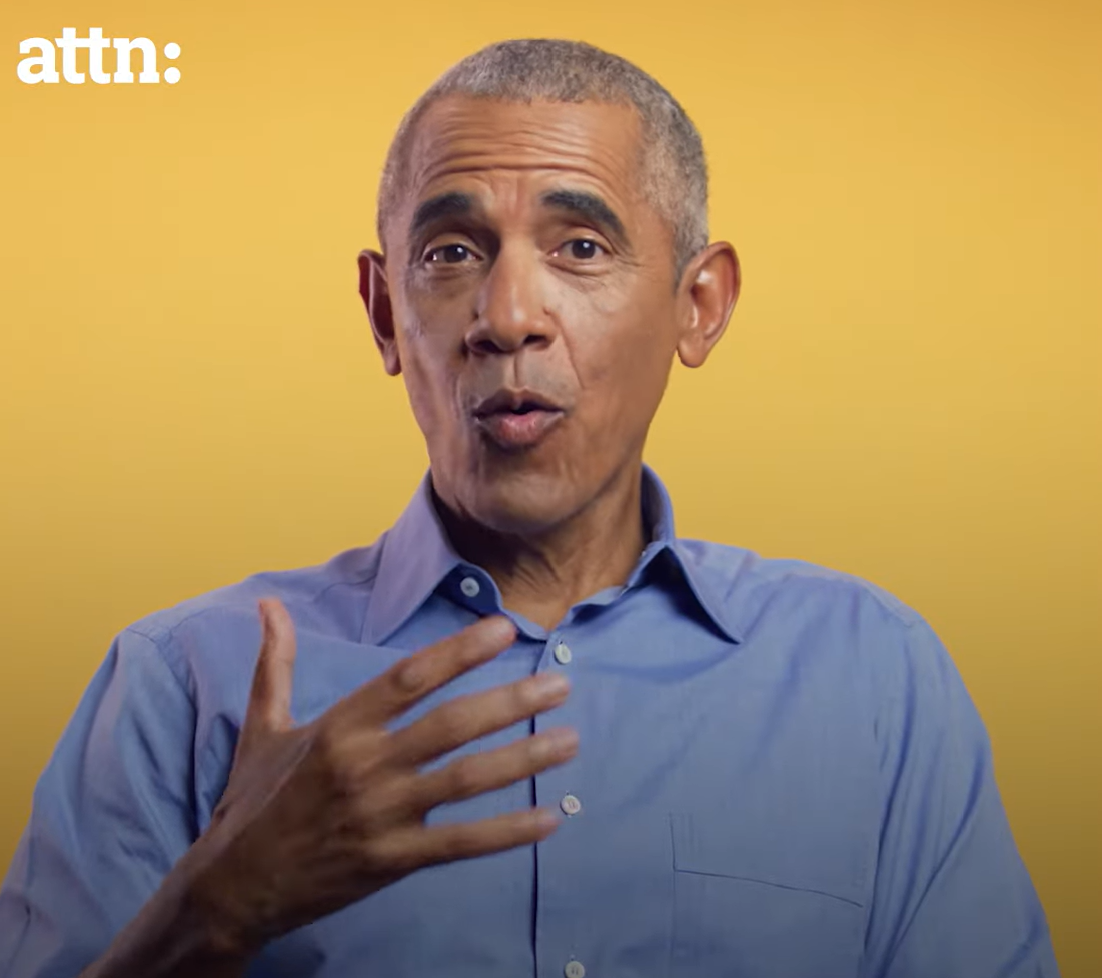


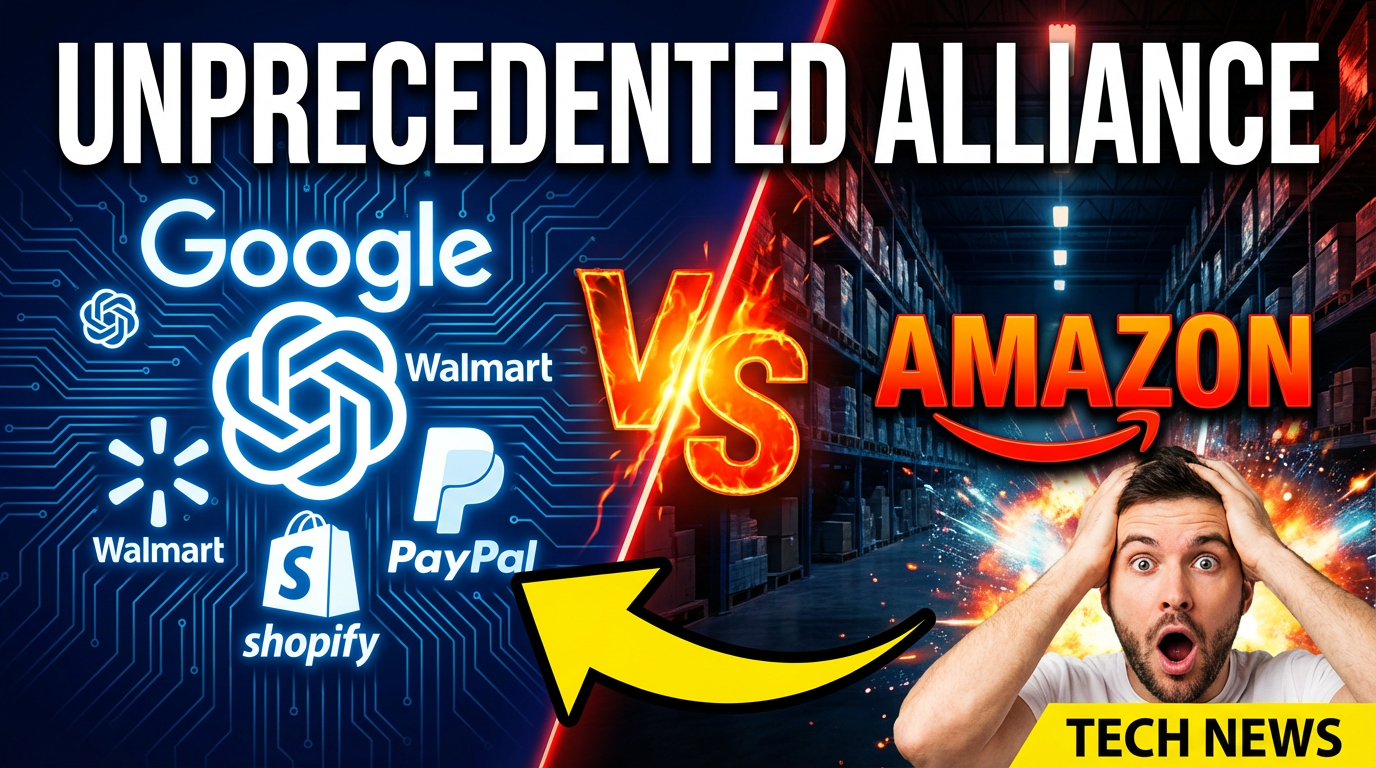
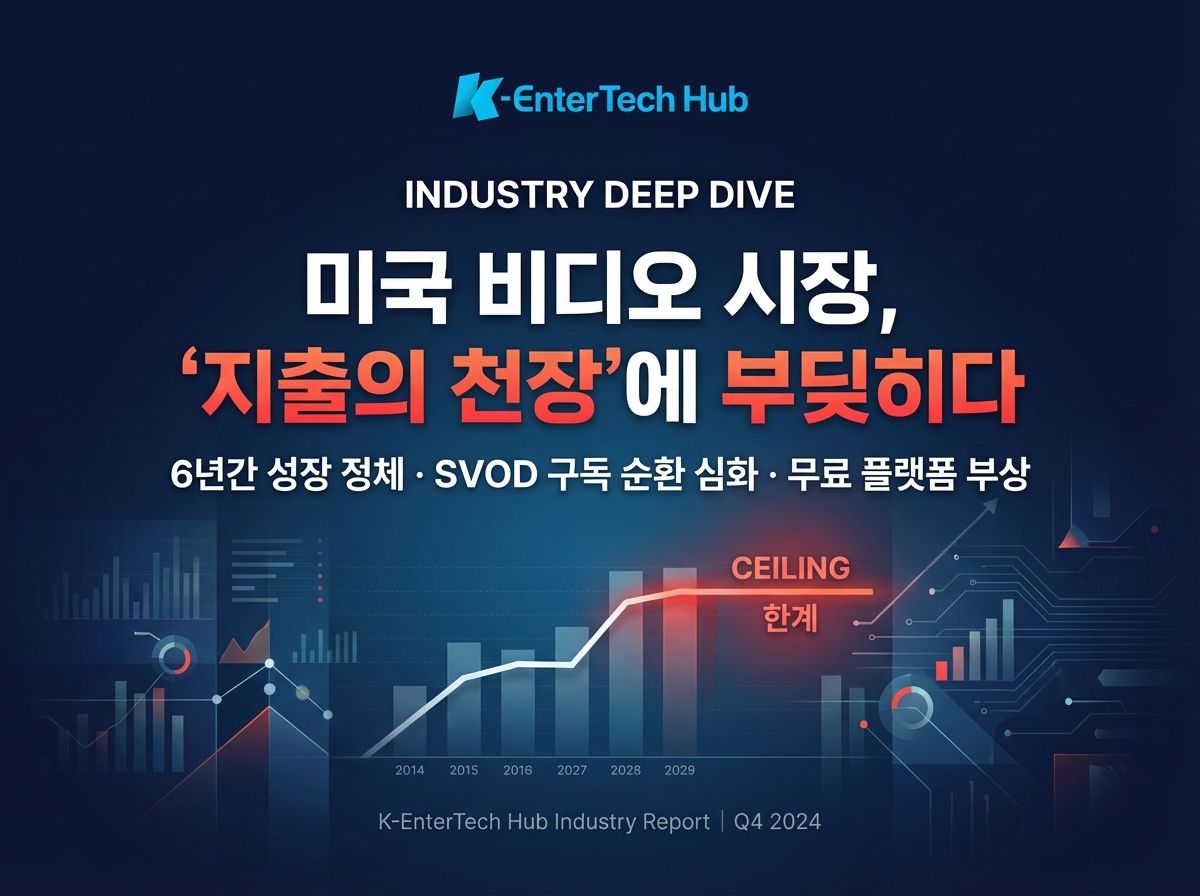
![[보고서]전통 언론사의 크리에이터 전략 대전환](https://cdn.media.bluedot.so/bluedot.kentertechhub/2026/02/0nwc9z_202602100212.png)
